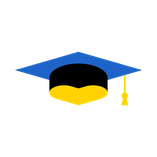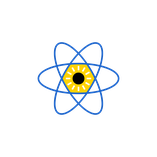APOLLO 8: 8 strategic education projects

APOLLO 8 stands for Ambitious Programme for Future-oriented Online/blended & Lifelong Learning in the context of the broader Education Policy and strengthens the position of Ghent University as a progressive and innovative higher education institution. The projects within APOLLO 8 are briefly explained below.
Would you like to contribute to the education of the future? Do you have a master's degree, do you like to take initiative and do you prefer to let things move forward? Apply now via this vacancy notice to participate in one of the projects.
Project 1: Innovation of the Ghent University study programmes

This project focuses on rationalization and optimization within the study programmes of Ghent University by analyzing the study programmes at the level of our institution. In principle, the study programmes of the entire institution are assumed, but this process takes time and goes through various phases and can therefore not be started immediately for all 209 basic study programmes at Ghent University. Over the next 2 academic years (period of the 'Voorsprongfonds' with which the APOLLO 8 projects are financed), this process will take place in 5 faculties (134 study programmes involved).
Ghent University strives to achieve rationalization and optimization through intra-faculty, inter-faculty, inter-university or international collaboration. The actions focus on various levels in the institution: (1) that of the individual course units and minor/major tracks, and (2) that of main subjects and the study programme. At each of these levels, it will be assessed on the basis of quantitative (including number of students) and qualitative (including social importance/necessity, uniqueness, broad field and labour market) criteria whether rationalization and optimization is desirable or necessary.
Ghent University has two global objectives for this project:
- Rationalization and optimization of course units and minor/major tracks within Ghent University
- Rationalization and optimization of main subjects and study programmes within UGent
Project 2: Better cooperation with the universities of applied sciences

The ultimate goal is to maximize the valorization of already acquired competences and to offer flexible learning paths. On the one hand, opportunities and (practical) preconditions for students from universities of applied sciences who want to follow an academic programme afterwards are critically reviewed. On the other hand, university students are given the opportunity to take courses at the university of applied sciences during their education. In this way they can take up additional professional training and their study duration is reduced. Or they are guided to reorient more quickly from an academic to a professional study programme.
Seven objectives were set, each of which coincides with a work package. We usually start from a regional collaboration, which is closely related to the AUGent Association (i.e. the existing collaboration with HOGENT, Arteveldehogeschool and Howest). The first two objectives are generic, i.e. to improve the transfer between professional bachelors and academic masters (via a thorough analysis of the bridging programmes) and to enable a (faster and better) reorientation from the academic bachelor to the professional bachelor. The following 5 objectives are more specific and focus on more in-depth trajectories within specific domains and areas of study: social work/psychology, nutrition, architecture, biomedical sciences and speech therapy and audiology.
- Objective 1: Optimization of the transfer between the professional bachelor's programmes and Ghent University by analyzing and optimizing the bridging programmes
- Objective 2: Optimization of the reorientation from the academic bachelor to the professional bachelor
- Objective 3: Alignment of the learning ladder between professional bachelor's programmes in the field of study Social Work and the academic programmes in the field of Psychology and Educational Sciences in the region of Ghent (Ghent Connected)
- Objective 4: Optimization of the interdisciplinary collaboration and transfer between the Nutrition and Dietetics programme and the master Movement and Sport Sciences
- Objective 5: Exploration of the possibility of establishing a master's degree in Landscape Architecture in a partnership between UGent, VUB, Erasmushogeschool, HOGENT
- Objective 6: Elaboration of an innovative and sustainable trajectory in medical laboratory technology for students of Biomedical Sciences
- Objective 7: Developing innovative routes between the professional bachelor's programmes in Speech Therapy and Audiology and the academic bachelor's and master's programmes in Speech Language and Hearing Sciences
Within this project, data are processed of students who reoriented to universities of applied sciences within the Association AUGent between academic year '15-'16 and '21-'22. Privacy laws are respected. If you have any questions regarding privacy or wish to exercise your rights of access, rectification, restriction and retention, please contact simon.acke@ugent.be or privacy@ugent.be.
Project 3: Future-proof Ghent University study programmes

- EU agendas such as European Education Area (2020), European Skills Agenda (2020), the under development European Strategy for Universities including the European Universities initiative and a European approach to micro-credentials
- European vision texts such as Universities without walls, a vision for 2030 (EUA, 2021) and Possible scenarios on the path towards a European degree (EUA & ENQA, 2020).
Ghent University wants to focus on a future-proof and agile course catalogue. Over the next five years, the study programmes will be assessed for their future-proof character on the basis of five future-proof criteria:
- 'T-shaped professional': does the programme offer a well-considered balance between acquiring the discipline-specific competencies, which are still very important, and the generic competencies, which are gaining in importance
- Inter-/multi-/transdisciplinary implementation of the curriculum: do students from different disciplines interact sufficiently during the study programme?
- Stepping stone principle: is this systematically integrated for the acquisition of international and intercultural competences?
- Embedding in society: does the programme respond to future social needs, based on/using 'real-life challenges'? Does it also offer students opportunities for social engagement and internships?
- Central position of the student: Does the programme offer flexible learning opportunities and learning paths so that students can personalize their education in a competency-oriented way? Is there attention to self-management and supervision of the student?
The European Universities initiative ENLIGHT, of which Ghent University is a part, will support the implementation and testing of these general European principles.
In phases, Ghent University wants to realise the following concrete objectives:
- Develop a vision and methodologies for embedding the five Ghent University future-proof criteria in study programmes based on innovation in learning outcomes, programme and assessment
- Developing initiatives for the professionalization of study programmes and teachers in implementing future-proof education and providing hands-on guidance to programmes and lecturers in implementing future-proof education
- Implementation, monitoring and evaluation of these future-proof curricula in 20 selected and pilot programmes from all faculties, making use of a co-creation process that partly runs parallel to the development of the vision and methodologies
Learn more about this project via onderwijstips.ugent.be.
Project 4: The academies as motor of lifelong learning at Ghent University

The first steps have been taken with the embedding of lifelong learning academies in all faculties and the establishment of a central Lifelong Learning Committee. In some faculties these academies already existed (for a long time), in others they have just been established. The (inter)faculty academies are the driving force behind lifelong learning at Ghent University. They are responsible for the organization and implementation of the lifelong learning offer within their study areas. They monitor the quality of the programmes and keep in touch with the demands of the professional field.
Ghent University deliberately chose to embed these academies within the faculties and not to establish a university-wide centre for lifelong learning. The expertise is to be found in the faculties, where innovative research is done and where professors and researchers design innovative courses (in constant interaction with the broad field of work, with society and with international colleagues).
In order to strengthen the lifelong learning offer in Flanders, Ghent University wants to cooperate with (international) partners and organizations in (higher) education and with the professional field. In particular, this takes place within Nova Academy, the alliance in the field of lifelong learning between the Vrije Universiteit Brussel, Ghent University and the UAntwerpen. Various joint (training) initiatives will be developed under this umbrella. The first realization is the common platform www.Nova-Academy.be, on which the broad public can search the complete offer.
Ghent University has three concrete objectives for all nine academies:
- The development and application of a methodology to arrive at a lifelong learning offer that is attuned to the needs of the work field and society and to the expectations of the learner
- Developing new lifelong learning programmes in cooperation with (international) partners, companies and organizations in (higher) education and the professional field
- Opening up a wide range of micro-credentials in the context of lifelong learning
Within this project we want to realize these objectives in all nine academies for lifelong learning of Ghent University.
Project 5: Campus of the future

The objectives of this project are:
- Fitting out 40 classrooms at an accelerated pace with flexible, dynamic tracking cameras with zoom capabilities in function of online and hybrid forms of teaching
- Setting up 10 high-tech multifunctional BYOD (Bring Your Own Device) classrooms suitable for collaborative working methods, frontal and hybrid education, digital testing, and equipped with technology for teleclassing and digital collaboration
- Equipping 2 large BYOD (Bring Your Own Device) communicating rooms for digital testing that can also be used for collaborative learning and as a study and work place
Project 6: Realization of an innovative second generation digital learning environment

The aim of this project is to strengthen the digital integrated learning environment of Ghent University by adding four digital educational applications to Ufora:
- a video platform
- an authoring tool for interactive learning paths
- an ePortfolio tool
- a digital testing platform
The entire process that starts with the questioning of the needs to the implementation, professionalization of lecturers and sustainable use will be covered in this project.
Project 7: Virtual Science Labs

Part of the solution? Virtual Science Labs. According to research, these labs significantly increase the learning effect because students can take control of their own learning process. Nevertheless, classical practicals remain important because of the hands-on experience in a real research environment and the contact with other students and researchers. With this project, Ghent University wants to focus on 'blended' learning paths, by improving the classical practicals and making them more performant (via e-learning) and at the same time providing an additional and flexible digital offer. This additional offer allows students to explore scientific concepts at their own pace without actually visiting a lab.
In developing these virtual or e-practicals at Ghent University, we not only want to limit ourselves to the traditional domains of practicals in physics, chemistry, biology, physiology or anatomy, but also include e-learning in programming, data science and statistics.
Ghent University has 3 concrete objectives for this project:
- Develop blended learning paths to improve and enhance the performance of traditional labs. In this way, we create powerful learning environments for students and strengthen the learning effect and the efficiency of the labs.
- Develop an additional and flexible digital offer of virtual labs, in a realistic (and safe) setting. Students learn to understand complex concepts in a dynamic and engaged way, in combination with automated feedback
- Further develop and sustain e-learning pathways (DODONA) for practical exercises in programming, data science and statistics. In this respect, we are committed to rolling out a "train the trainer" course and to developing new modules (e.g. on learning analytics) in co-creation with users
Learn more about this project via onderwijstips.ugent.be (in Dutch).
Project 8: Towards a sustainable blend@UGent

1. The Blend@UGent vision in the Programme Committees
The 'programme alignment tool Blend@UGent' is a methodology that will be developed to facilitate and structure the dialogue in programme committees. It consists of a digital application that maps out the following issues:
- Proposals from lecturers for teaching and evaluation in relation to online and on-campus education across subjects
- What proportion of online/on-campus education this will lead to
- What the student's workload will be
- What infrastructure/classrooms will be needed for each subject/what scheduling is desirable, etc.
Thanks to the roll-out of this methodology, study programmes make their vision of Blend@UGent explicit and concrete. They will think more consciously about a well-considered mix of online and on-campus education in function of the competences to be achieved, the well-being, the workload and the educational organization. An additional advantage at the institutional level is that the needs regarding ICT, infrastructure, scheduling and professionalization become clearer.
2. Professionalization of lecturers and programme teams to reinforce competences in the field of digital didactics
In order to successfully offer online education, lecturers and programme teams must be comfortable working with new, online forms of teaching and assessment. They must also be given the opportunity to strengthen their competences in the field of digital didactics. For them, Ghent University will draw up a state-of-the-art, online, blended and on-campus training offer that will be broadly filled out. It will not only be available to lecturers themselves, but also to programme teams and faculties. The aim is to accelerate and embed the knowledge about teaching in the newly designed teaching spaces and working with new teaching methods.
3. The development of a Ghent University Online Education Community around blended education and strengthening a learning network (LNO2) across the institutions
An Online Education Community will be developed within Ghent University where lecturers can find each other across programmes and faculties. In this way, they can quickly and easily share experiences regarding various digital teaching and assessment methods. This community will be moderated by central and faculty education support staff. Furthermore, UGent will strengthen the LNO2 network, which will enable the exchange of expertise on blended learning across Flanders.
Ghent University has 3 concrete objectives for this project:
- Developing a tool with support so that the programmes can translate the institution-wide vision Blend@UGent into their own context. Via the same tool, Ghent University also obtains a structured overview of the needs in the field of ICT, infrastructure, scheduling and professionalization to shape education.
- Developing a range of professionalization activities to strengthen the competences of lecturers in the field of digital didactics
- Setting up an online education community within Ghent University and, within the LNO2 network, working together in Flanders on blended education
More information
For additional information, please contact onderwijs@ugent.be
